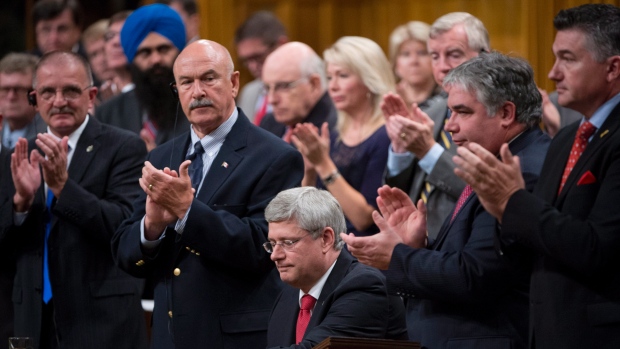Exploring how doing business in the Commonwealth profits your company: join us at “Business Opportunities in the Commonwealth.”
When one types into Google “What do all Commonwealth countries have in common?” one of the first answers that appears is “They were all once part of the British Empire, and governed by the King/Queen of England”. In fact there is so much more to this relationship. The response is outdated, as are general perceptions of the Commonwealth.
Among the many things that bind the Commonwealth countries is that their legal system are modelled on, or are greatly influenced by, the British common law system. Common law is extremely powerful. As Canadians we give credit where it is due and therefore, it must be noted that London based law firms are extremely successful and constantly busy with international work. Why is this? Owing to the prevalence of the English language in international business, English law has long been the law trusted to govern international agreements between different jurisdictions. If we think of the agreements that are made between countries from different backgrounds, such as Russia and Brazil, neither may be comfortable using the other country’s legal system and therefore turn to the reliable, common law that privileges neither side and is used widely in international business. Common law models have in fact become so widespread that they are increasingly affecting even traditional contract types and domestic legal relationships, such as rental of real estate or sale agreements within the borders of the same country. “Legal English”, traditionally the preserve of lawyers from Commonwealth countries is also today a global phenomenon used the world over.
Common law however, can be even more beneficial to countries who share a common law system as it allows legal cooperation between member nations, a unique feature in conglomerates of countries. Dr. Mohan Kaul, Chief Executive Officer of the Commonwealth Business Council (CBC) furthermore said doing business with countries that have similar institutions and business methods can bring the cost of doing business down by up to 20%. Canadian companies doing business with common law countries further stand to excel as any business venture is not only about numbers, but about a rapport: about trust between two parties. With both being common law countries they will already share ideas and mindsets on how to proceed. A certain affinity may even exist for the similar histories they share.
The commonwealth holds another advantage: the diversity of countries within it. In 2013, the economic situation is not much improved from 2011. For this reason, Canada should look for partners that are growing fast and that can supplement her existing trade relations with Europe and the US. Of course the Commonwealth has her ‘shinning stars’ who always perform economically, for example, New Zealand, the UK (from whom imports to Canada jumped by 18.3%), Australia and Canada herself who all remained in the top 20 in the World Bank “Doing Business 2012” report. Malaysia too moved up to take a spot at number 18, and Singapore earned the accolade as “easiest country to do business in”. But the real countries to watch are the movers and shakers of the 2012 rankings: they, the emerging markets, are the more obvious choices for both imports and exports, where labour is more cost effective, lowering the price of imports, and markets are less saturated, increasing the demand for Canadian exports. The World Bank “Doing Business 2012” report also said that, despite an overall drop in rankings of Commonwealth countries as a whole, some member states which were among the most reformed and improved were anticipated to grow at over 5% this year.
Rwanda’s successful business reforms allowed it to move up and rank 3rd in Sub-Saharan Africa and 45th overall. India, the Solomon Islands and Trinidad and Tobago increased their position by some 7 places. Cyprus despite being among the worst hit by the recession, along with Sierra Leone and Sri Lanka were among the most improved countries in 2012, jumping 9 places each. All these growths are of course subject to the caveat of non success stories including Pakistan and the Caribbean countries of St Kitts and Nevis, St Vincent and the Grenadines which fell dramatically, below the top 100 countries mark owing to a host of internal reasons.
What is interesting, is that the highest jumping countries all made improvements to their legal systems for businesses and investors, and these changes correlated directly with economic growth. Sri Lanka strengthened investor protections and lowered corporate taxes, while Sierra Leone enhanced its credit information system, made it easier to enforce contracts and expedited insolvency proceedings as well as reducing the time required for trading across borders. A common legal system between Canada and these countries allows her to take greater advantage of these reforms.
While Canadian companies may worry at the fact that “Law” and “Law enforcement” are two different things, and often the former is somewhat neglected particularly in developing countries, it is the Commonwealth super powers who have the highest likely rate of survival in such a climate. This is because they are most au fait with mechanism to ensure that the similar law system is enforced and can count on the affinity between the countries that will make the countries more likely to be amenable. Moreover, according to a 2003 paper by Shleifer, because laws differ so markedly around the world, investors’ rights become significantly limited. It is here again that the Commonwealth citizens are at an advantage: although the rights and privileges for non Commonwealth citizens differ from country to country, a number of Commonwealth countries grant them more privileges than non-Commonwealth nationals, allowing investors perhaps more rights and flexibilities or at least more room to manoeuvre in the respective Commonwealth country.
In conclusion, the Commonwealth’s new and emerging markets are desirable and represent exhilarating business opportunities for Canadian companies. Though common law will not be the sole determining factor for Canadian companies looking to expand overseas, if faced with a decision between two similar potential countries to invest in; the factor that may tip the balance in favour of one might be if it too, is a Commonwealth country.



